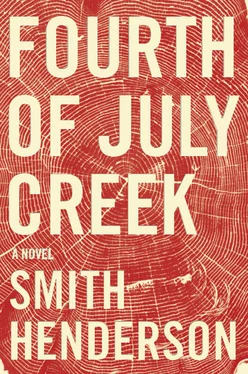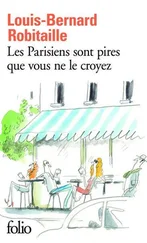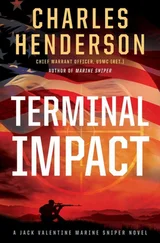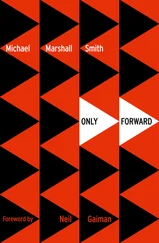“Let me be perfectly clear: I’m never going to tell you. And you’ll never find him, I’ll make sure of that.”
Wes stared at Pete a minute and then shook his head and ejected a laugh.
“You just fucked up, man.”
“That some kind of threat?”
Wes got in his truck.
“Enjoy your pop.”
Pete held up the bottle, took a swig, and with Wes watching him, walked down to river, disrobed to his underwear, and jumped off the bridge into the water.
The cold shocked him, but he swam down to the bottom and pulled himself along the rocks and moss. He lay in the long grass and warmed in the sun. Dragonflies hovered over him. In the shade of the gallery, drinking another pop, he was pleasantly chilled, smelling of river water and sunshine.
For a minute, he forgot all about Luke, but then he thought of Rachel — the way one might remember the disease ravaging his insides — and was compelled to get up and go to his car and do something, anything. He drove east, first for no reason, and then on to Pine Hills, as though it were on some calendar that he had just consulted. Ah yes, go see Cecil.
Pete again wasn’t allowed to visit Cecil, so he asked to talk to the head of the facility, explaining that he was the boy’s social worker and wanted to speak with him in order to file updates on the case. The facility head had the ashen pallor of someone very ill, someone no longer in possession of the will to resist requests like Pete’s. Though they both knew that once Cecil was in the facility Pete’s role in the boy’s life was effectively finished, everyone answered to their paperwork.
They took him through an increasingly loud and scuffed series of halls and locked doors until they reached a kind of dayroom. Concrete tables and concrete chairs, concrete shelves. A pitted drain in the middle of the floor. Shelves held duct-taped board games and 1960s editions of Boys’ Life . Many pristine Bibles. Around the octagonal space were arranged two floors of rooms, a high railing. The whole place was empty. The guard said everyone was at activity and Cecil would be sent for.
The fluorescents hummed. There were small windows in the concrete cupola and even those had chicken wire in them and only pale blue sky could be seen without, the sky itself perhaps a pane of paint.
A different guard escorted Cecil in, set him at the table, and stood by the door from the hall. Cecil’s head was freshly shaved and pink and stippled black, and he had a black eye with an areola the color of margarine.
“Christ, what happened, Cecil?”
“They give me an X-ray. It ain’t fractured they said.”
“You in a fight?”
Cecil smiled. Nodded back toward the guard.
“He did that?”
The guard could hear them.
“You did this?” Pete asked. “Did you hit him?”
The guard removed a stick of gum, threw the wrapper on the floor, and said to Cecil that he had three more minutes.
“Bullshit,” Pete said. “I’m his case worker.”
The guard blew a bubble.
Cecil leaned forward, spread his fingers over the concrete, appeared about to say something, but didn’t.
“This is fucked up,” Pete said. “I had no idea it was like this.”
“This is exactly what you said it was like,” Cecil said. “Remember? I was gonna turn into a ‘bad man’? Or did you forget the talk you gave me at my uncle’s?”
“I barely slugged you. I didn’t nearly fracture your face. I was only trying to get through to you—”
“He was only trying to get through to me too,” Cecil called over his shoulder.
“Tick tock,” the guard replied.
Cecil smiled, scratched his skull, picked at some scab, and then inspected the nail.
“Look, I came a while ago, but they said I couldn’t see you,” Pete said.
“I got in trouble.”
“For what?”
“I burned somebody.”
“Excuse me?”
“I saved my chocolate and I burned the shit out of him.”
“Why’d you burn this guy?”
Cecil stared dementedly at the table.
“There’s this microwave in the kitchen,” Cecil said. “And I was on dishes and I put my commissary chocolate in a cup and microwaved it. And when he come up to turn in his tray I threw the hot chocolate in his eyes, man.”
“Jesus.”
“Fucker’s face looks like a melted candle.”
“Jesus.”
“Get a chance, I’ll have to kill him.”
“No.”
“No?” Cecil grinned.
“Cecil, look. I’m gonna see about getting you out of here. This is—”
“It’s cool. Nobody fucks with me. Not now. Except staff, right, boss?” he shouted.
“Time’s up,” the guard said, rapping the door with his knuckles. Someone opened it from the hall. Cecil stood and started automatically for the door.
“Hold on! I haven’t even gotten three minutes,” Pete said, and the guard and Cecil both soughed, like they didn’t have time to indulge him.
“I’m gonna go see your mom and talk to the judge, all right?”
“Sure.”
The guard pointed at the gum wrapper he’d thrown to the floor. Cecil squatted, picked it up, and put it in the bin right nearby. Then, with just his fingertips on Cecil’s tailbone, the guard directed him into the hall.

Did she find him?
She waited in Nashville at his friend’s house for a few days stretched into weeks.
Then what?
Hide nor hair.
Caught a ride west in a Volkswagen split window chasing the Dead. Kansas City to St. Paul to Denver. A few weeks at a commune outside of Boulder. Swimming. Sunning. The mountains again. A feeling of home to it, but no family, just whoever was around, she tried to be useful, she lent a hand until she felt like it was time she moved on.
Where did she stay?
She stayed where there were parties and if there were no parties, she stayed where there had been a party and then with someone who’d been at the party. She sought out fellow travelers.
Did that work?
More or less. There were detours, but then could you call them detours if you weren’t headed anywhere?
Detours where?
Places. Situations. The Republic of California. She made advocates. Sometimes she just waited. Someone always came along. She could make him like her. She was tall for her age and had nice tits. The other girls said so, said she had nice tits. She got condoms and she put out. It was like the boys could tell she was up for it, and she always went for the nice ones. College soccer players and adorable stoners. She had a fake ID for buying beer and she had tops that fell off her shoulder and showed her bra strap or didn’t show a bra strap at all. She wore mirrored sunglasses. She smoked.
So she gave up on Cheatham?
He was the one who ran off, not her. What’re you gonna do, a person doesn’t want to get found?
He had a lead in Reno. The cops stopped a car near Lake Tahoe, the youngest girl inside went by the name of Heather but was the spitting image of the girl in his flyers. When she called, the social worker said she’d put a Polaroid of the girl in the mail. Pete didn’t wait. He drove sixteen straight hours to the Washoe County Department of Family Services office and told them who he was and waited in the lobby, studying the stains on the carpet through bloodshot eyes. The blotches on the fabric pulsed in his vision, in his road-weary exhaustion, like amoebas, split and divided in a hallucination of life.
The social worker he’d spoken to emerged from the plantation of cubicles and introduced herself—“Jenny Lovejoy,” she said — and then asked was he all right.
Читать дальше













